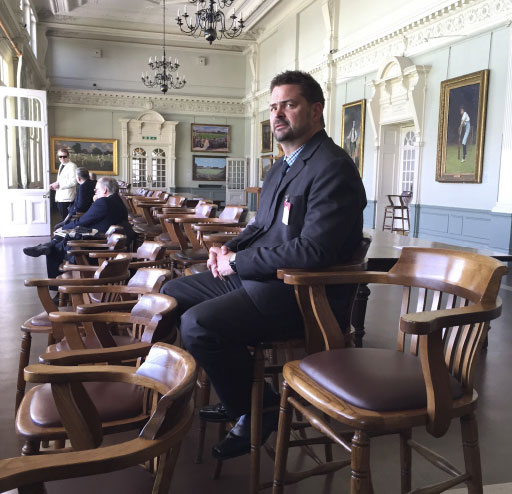 Download a printable copy of this article (PDF 499KB)
Download a printable copy of this article (PDF 499KB)
- Does your mission statement mean much?
- Does it reflect your unique community?
- Mission statements are less important than ethos.
- If we’re all excellent then excellent is only average.
- The opposite of excellent is outstanding.
I remember distinctly listening to Professor Richard Smith provoke an audience of school leaders in Darwin to think a little further than our words. We had gathered together to learn about how Central Queensland University (CQU) had undertaken some pioneering work in pre-service teacher education and that this model was being adopted in the Northern Territory. It was the Teaching Schools model that has now become popular around Australia because of the quality of both the teachers provided to schools and the career pathway it presents our next generation of teachers. We were impressed.
“Make your life a mission – not an intermission.”
– Arnold H. Glasow
Professor Smith had the option of only telling us all of the positives. CQU had developed a sound model, embedded deeply in current research and they were producing some great evidence that this could work anywhere. To some extent, we were easy to convince. But Professor Smith didn’t want an easy sale – he wanted real success. He knew that we needed shaking up and should not simply accept the benefits of a new program if we were to truly make a difference.
Professor Smith then asked how many of us had the word excellent in our Mission Statements. Around 50% of hands around the room went up. It’s heartening when so many of your colleagues share your ambitions and even your language, but then Professor Smith proceeded to burst our bubble. He questioned the validity of a scale where 50% of the sample measured come out as excellent … and if it did, then what did excellent really mean?
We were flattened. We had been comfortable in the shared pursuit of excellence without really thinking about what we’d done to the word excellent itself. If everyone and every school is excellent, then what just happened to excellent? It had become decidedly average.
Dialogue started to flow around the room and we could see that Professor Smith drew some satisfaction from his impact. He let the discussions stretch for a little as we realised for ourselves that our words as leaders can become banal unless we match these aspirational statements with our behaviours and through our leadership practice. Schools should not be measured alone by their stated intention to be excellent.
Just when Professor Smith’s point appeared to be fully made, he hit us with one more big punch. He asked us to discuss what, in the light of excellent being now viewed as universally average, the opposite of excellent would be. We still didn’t get it. We offered responses like mediocre and ordinary and Professor Smith shook his head.
Professor Smith then said something that has rung in my ears as a school leader since the moment I heard it, The opposite of excellent is …. outstanding.
What I took from Professor Smith’s address – and perhaps this wasn’t even his intention – was that our words can lack meaning and that we attach an artificial purpose to them when we do two things:
- When we choose words that do not adequately reflect our true context, our people, our community and their unique aspirations.
It takes courage and inspiration to go beyond generic aspiration. - When we fail to make explicit the actions, processes and repeated behaviours required to realise any stated mission.
When we can see our mission statements for what they are, we write better ones and context specific ones. We resist the urge to borrow from other schools so that our new mission statements can reflect both the reality and ambitions of our own school communities. We bend the path of our thinking and start to consider whether our mission statements have any value, or if perhaps it’s something like our ethos that really counts. The Greek meaning of the word ethos is everything you say and everything you do.
Counter-intuitively it takes a far more informal focus to look at, measure and examine our ethos. But it matters.
It is in the way, or the how of what we do, that our school culture is built. This culture will ultimately determine our schools’ ability to change and improve. Professor Smith said one more thing that stuck with me that day … “If we don’t like change in education, we’ll like irrelevance even less.”







